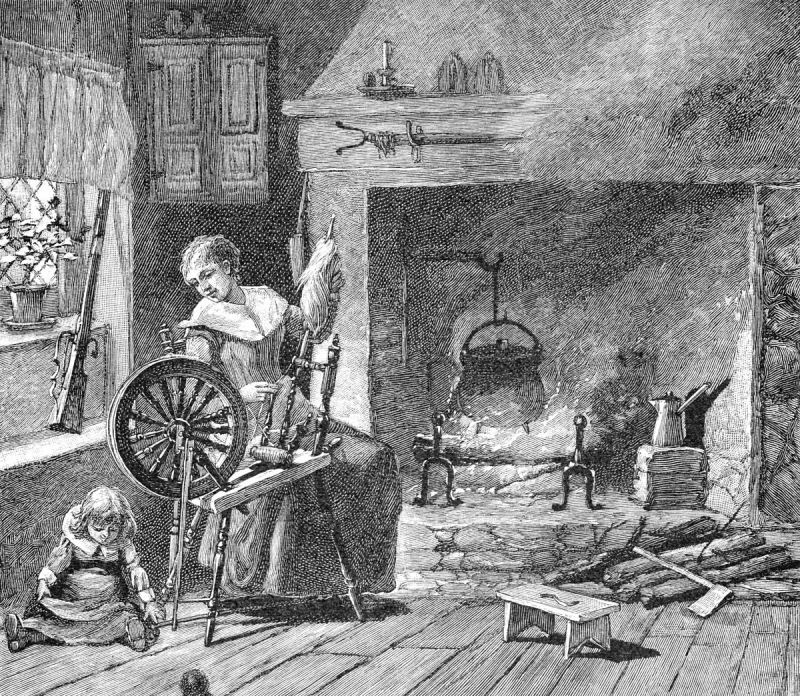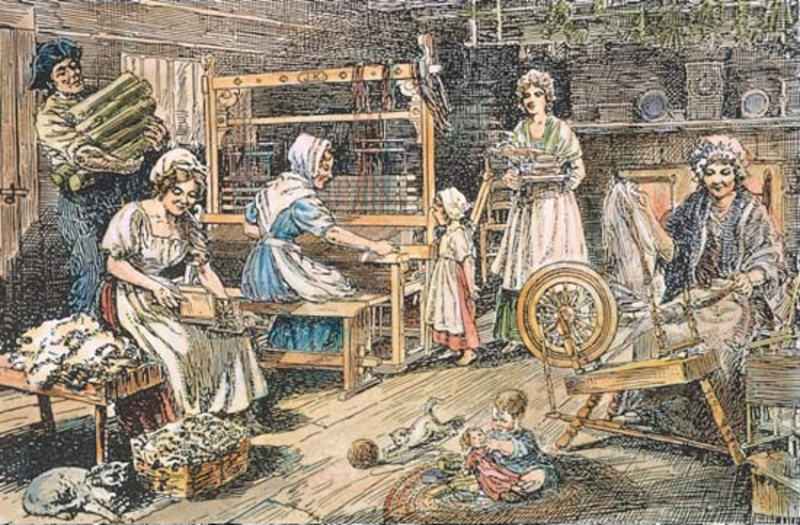The homespun movement was supported by women in response to the British Townshend Acts
One of the most interesting facts about women during the Revolutionary war is that the homespun movement was supported by women in response to the British Townshend Acts. Homespun became a generic name for any cotton, linen, and wool textiles created in the United States. Wearing homespun garments became a patriotic symbol of the resistance against British authority as the boycott of British goods gained momentum. Women in particular took the lead in the movement by shunning imported satin and silk and instead spinning clothes from locally-made materials. They turned spinning into a social gathering.
Women were involved in the homespun movement, which was related to these activities. Patriot women continued a lengthy practice of weaving and spinning their cloth to make clothing for their families rather than wearing or purchasing apparel made of imported British materials. In addition to boycotting British textiles, the homespun movement supplied clothing and blankets to the Continental Army. Jane Mecom, Benjamin Franklin's youngest sister, could be contacted for her soap formula and even instructions on how to construct the soap-making forms. Wearing clothes of your own making and spinning, or homespun, was a nonviolent manner of demonstrating patriotism.







